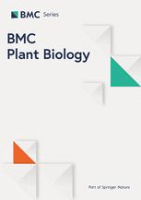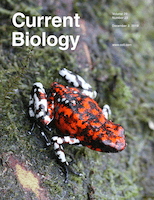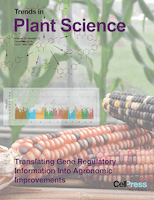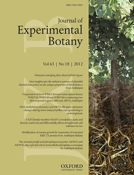
BMC PLANT BIOLOGY
Scope & Guideline
Unlocking the Secrets of Plant Biology
Introduction
Aims and Scopes
- Molecular Plant Genetics:
Research addressing the genetic components of plant traits, including gene mapping, expression analysis, and the role of specific genes in plant development and stress responses. - Plant Stress Responses:
Studies investigating how plants respond to abiotic stresses such as drought, salinity, and temperature, including physiological, biochemical, and transcriptomic analyses. - Plant-Microbe Interactions:
Research exploring the interactions between plants and microorganisms, including beneficial symbiotic relationships and pathogenic interactions. - Metabolomics and Phytochemistry:
Investigations into the metabolic profiles of plants, focusing on the biosynthesis of secondary metabolites and their roles in plant defense and adaptation. - Ecological and Evolutionary Studies:
Research examining plant responses to environmental changes, including evolutionary adaptations and ecological dynamics within plant communities. - Transgenic and Genome Editing Approaches:
Studies utilizing genetic engineering and CRISPR/Cas9 techniques to enhance desirable traits in crops and understand gene function.
Trending and Emerging
- CRISPR and Genome Editing:
The application of CRISPR technology for precise genetic modifications is rapidly increasing, enabling researchers to explore gene functions and improve crop traits with high specificity. - Multi-Omics Approaches:
Integrating transcriptomics, metabolomics, and proteomics is becoming a dominant trend, allowing for a comprehensive understanding of plant responses to environmental stresses. - Climate Change Resilience:
Research focused on enhancing plant resilience to climate change through genetic and physiological adaptations is gaining traction, reflecting global environmental concerns. - Plant-Microbe Interaction Studies:
There is an increasing emphasis on understanding the complex interactions between plants and their microbial communities, particularly in the context of stress resilience and nutrient uptake. - Biostimulants and Biofertilizers:
Research into natural products and their role in enhancing plant growth and stress tolerance is emerging, as the agricultural sector seeks sustainable alternatives to chemical fertilizers.
Declining or Waning
- Traditional Breeding Techniques:
Research employing conventional breeding methods has seen a decline as genetic engineering and genomic approaches become more prevalent and offer more precise trait modification. - Basic Morphological Studies:
While still important, studies focused solely on morphological traits without accompanying genetic or molecular analyses are less common, as integrative approaches gain favor. - Low-Impact Agricultural Practices:
Research on traditional low-impact agricultural practices is increasingly overshadowed by studies focusing on biotechnology and sustainable practices that leverage modern science.
Similar Journals

PHYSIOLOGY AND MOLECULAR BIOLOGY OF PLANTS
Innovating Agriculture through Plant Molecular InsightsPHYSIOLOGY AND MOLECULAR BIOLOGY OF PLANTS, published by SPRINGER, is a vital journal focused on the advancing field of plant science. Featuring research that spans physiology, molecular biology, and their applications in agriculture, this journal is pivotal for academics, professionals, and students keen on understanding plant processes and enhancing crop production. With an ISSN of 0971-5894 and an E-ISSN of 0974-0430, this journal is recognized for its scholarly significance, ranking in the Q3 category in Molecular Biology, Q2 in Physiology, and Q1 in Plant Science as of 2023. The journal maintains a strong position in the Scopus rankings, with notable percentile rankings including 87th in Plant Science. Established in 2000, this publication aims to foster the dissemination of cutting-edge research by providing a platform for open discussion and knowledge sharing about plant physiology and molecular mechanisms. While it does not currently offer open access options, its comprehensive studies and reviews serve as an essential resource for enhancing our understanding of plant biology.

Plants-Basel
Elevating ecological understanding through rigorous scholarship.Plants-Basel is a distinguished open access journal published by MDPI since 2012, offering a comprehensive platform for researchers and professionals in the field of ecology, plant science, and evolutionary biology. Based in Switzerland, this journal has established itself as a leader in disseminating high-quality research, evident through its impressive rankings in multiple categories, including Q1 in Ecology and Plant Science for 2023. With a substantial impact factor and a dedicated focus on advancing our understanding of plant interactions, ecosystems, and sustainable practices, Plants-Basel is vital for scholars seeking to contribute to these critical fields. The journal's commitment to open access enhances visibility and accessibility, facilitating the widespread sharing of knowledge essential for addressing contemporary ecological challenges.

CURRENT BIOLOGY
Illuminating Pathways in Agricultural and Biological ResearchCURRENT BIOLOGY is a premier academic journal published by CELL PRESS, dedicated to a broad spectrum of fields within biological sciences. With an ISSN of 0960-9822 and E-ISSN 1879-0445, the journal has established itself as a vital resource for groundbreaking research and advancements since its inception in 1991. CURRENT BIOLOGY boasts high prominence in its categories, securing a Q1 quartile ranking in Agricultural and Biological Sciences, Biochemistry, Genetics and Molecular Biology, and Neuroscience, indicating its significant impact and relevance in these fields. Notably, it ranks #9 out of 221 journals in Agricultural and Biological Sciences, placing it in the 96th percentile, while also maintaining a strong presence in the Biochemistry category with a rank of #26. Researchers and professionals can rely on CURRENT BIOLOGY for comprehensive reviews, innovative methodologies, and crucial scientific developments that bridge theoretical knowledge with practical applications. The journal continues to play an essential role in enhancing the global dialogue in biological research, making it indispensable for students, academics, and industry experts aiming to stay at the forefront of the rapidly evolving landscape of life sciences.

Plant Gene
Pioneering Research in Plant Genomics and BiotechnologyPlant Gene is an esteemed academic journal dedicated to the comprehensive study of plant genetics, genomics, and biotechnology. Published by Elsevier, this journal operates from its base in the Netherlands and has made significant strides since its inception in 2015, with a converged year span extending until 2024. As an integral resource in the field, Plant Gene is categorized in the Q2 quartile for Plant Science and Q3 for Biochemistry, Biotechnology, and Genetics as per the 2023 evaluations, reflecting its growing influence and quality of research. With an impactful presence in Scopus rankings—positioned at #145 in Plant Science—this journal serves as a platform for presenting innovative findings and advancing knowledge in plant science. Researchers, professionals, and students will find access to cutting-edge research articles that not only drive the scientific community forward but also offer invaluable insights into the genetic mechanisms underpinning plant development and resilience. While the journal currently operates under a subscription-based model, it aims to broaden accessibility and foster a diverse range of scholarly discussions in the ever-evolving field of plant genetics.

TRENDS IN PLANT SCIENCE
Fostering Interdisciplinary Dialogue in Plant ResearchTRENDS IN PLANT SCIENCE is a premier academic journal published by CELL PRESS, dedicated to advancing the field of plant sciences. With an ISSN of 1360-1385 and E-ISSN 1878-4372, this journal has established itself as a critical resource for researchers and practitioners alike, boasting a remarkable impact factor that places it in the Q1 quartile for plant science in the 2023 rankings. Featuring a comprehensive scope that encompasses emerging trends, innovative research, and pivotal reviews in the plant sciences, it aims to promote interdisciplinary dialogue and encourage progressive research methodologies. Hailing from the United Kingdom, TRENDS IN PLANT SCIENCE serves a global community of over 516 journals, achieving a top-tier ranking of 3rd in the Scopus ranking for Agricultural and Biological Sciences. This makes the journal an indispensable asset for anyone aiming to keep abreast of the latest developments in plant biology and its applications. As we look towards its future converging years from 1996 to 2024, the journal continues to foster scholarly excellence and innovation in the field.

BANGLADESH JOURNAL OF BOTANY
Bridging Science and Conservation in Plant StudiesBANGLADESH JOURNAL OF BOTANY is a prominent publication in the field of plant sciences, dedicated to advancing research and knowledge within the botanical community. Published by the BANGLADESH BOTANICAL SOC, this journal serves as a vital platform for researchers and scholars seeking to disseminate their findings related to plant biology, ecology, and conservation practices, particularly within the unique context of Bangladesh's diverse flora. With an ISSN of 0253-5416 and an E-ISSN of 2079-9926, the journal encompasses a wide scope of topics, reflecting interdisciplinary approaches in botanical research. Since its inception, with convergence periods from 1996 to 2001 and from 2003 to 2024, it has garnered recognition, positioned in the Q4 category in the Plant Science field with a ranking of #459/516 in Scopus, indicating its contribution to the field despite its developing impact. Operating within Bangladesh, at the UNIV DACCA DEPT BOTANY, the journal provides a crucial insight into the ecological and agricultural implications of plant studies in the region, catering to the needs of academics, professionals, and students eager to engage with contemporary botanical research.

Nature Plants
Innovating Research to Nourish Our PlanetNature Plants is a premier journal dedicated to the dynamic and interdisciplinary field of plant science, published by NATURE PORTFOLIO in the United Kingdom. With an impressive impact factor placing it in the top tier of scholarly journals—ranking Q1 in Plant Science for 2023—this journal sets a high standard for research dissemination. Nature Plants has maintained a remarkable Scopus Rank of 5 out of 516 in the Agricultural and Biological Sciences category, reflecting its pivotal role in advancing knowledge in the field. The journal aims to provide a platform for groundbreaking research that addresses key challenges in plant biology, ecology, and agriculture, thereby fostering a deeper understanding of plant science's contribution to global sustainability. Although primarily non-open access, it offers exclusive insights and robust discussions, making it an indispensable resource for researchers, professionals, and students eager to explore the latest advancements and innovations in plant science.

BIOLOGIA PLANTARUM
Pioneering Discoveries in Plant Physiology and GeneticsBIOLOGIA PLANTARUM, esteemed within the realms of horticulture and plant science, is a leading academic journal published by the Academy of Sciences of the Czech Republic, Institute of Experimental Botany. Established in 1959, this journal showcases innovative research and advancements in plant biology, focusing on a spectrum of topics including plant physiology, genetics, and biotechnology. With an impressive Scopus ranking in Horticulture (Rank #41/115) and Plant Science (Rank #221/516), it holds a significant place in the academic community, reflected in its Q2 and Q3 status within its respective categories. Although it is not open access, authors are encouraged to contribute to the growing body of knowledge that supports sustainable practices in agriculture and horticulture. Published in the Netherlands, BIOLOGIA PLANTARUM continues to foster collaboration and dialogue among researchers, professionals, and students dedicated to understanding and advancing plant sciences.

JOURNAL OF EXPERIMENTAL BOTANY
Exploring the intricate world of plant functions.JOURNAL OF EXPERIMENTAL BOTANY, published by Oxford University Press, stands as a premier journal for researchers and professionals in the fields of plant science and physiology. With an illustrious history dating back to 1950, this journal has established itself as a critical resource for advancing our understanding of plant biology and its applications. It is recognized in the top tier of academic publishing, reflected in its Q1 rankings in both Plant Science and Physiology for 2023, and boasts impressive Scopus rankings—placing it in the 96th and 91st percentiles of its respective categories. Though not an open-access journal, it ensures widespread access to groundbreaking research aimed at unraveling the complexities of plant functions and adaptations. As we look toward 2024, the JOURNAL OF EXPERIMENTAL BOTANY continues to play an essential role in fostering innovation, collaboration, and education within this vital area of science.

NEW PHYTOLOGIST
Exploring the Frontiers of Plant ScienceNEW PHYTOLOGIST is a premier international journal published by WILEY, focusing on the field of plant science and physiology. Operating since 1902, this esteemed journal has established itself as a vital resource for researchers and professionals alike, offering cutting-edge research and insights into the complex workings of plants and their physiological processes. With an impressive impact factor and recognized in the top quartile (Q1) of both the physiology and plant science categories, it ranks #8 and #9 respectively in their fields, placing it within the top 2% of journals. NEW PHYTOLOGIST is not only essential for enhancing the understanding of plant biology but also for addressing global challenges such as food security and environmental sustainability. Although it does not currently offer open access, the journal remains committed to disseminating knowledge to a wide audience through institutional subscriptions and partnerships. This journal continues to drive advancements in plant science into the future, making it an invaluable asset for students, researchers, and industry professionals.